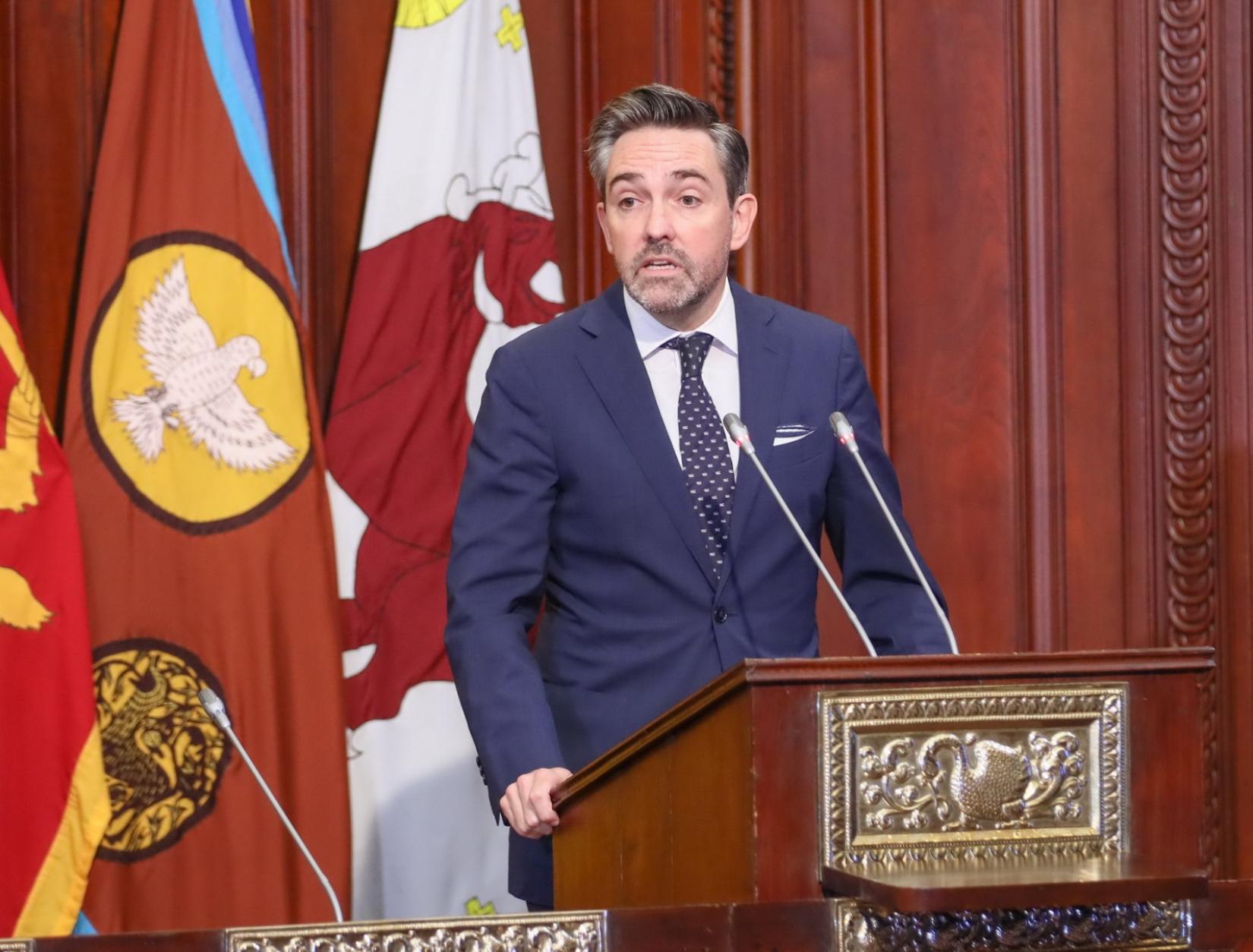Remarks by UN Resident Coordinator Marc-André Franche at the National Event for the Summit of the Future
_____________________________________________________________________________________

Hon. Minister of Foreign Affairs;
Dear Foreign Secretary and Additional Secretary to the President;
Colleagues, partners and distinguished guests.
I’m glad to welcome you to this event on the Summit of the Future. I am particularly grateful to the Ministry of Foreign Affairs and the Presidential Secretariat for their leadership and for partnering with the United Nations Team to organize this important conversation, at a critical moment for the country.
Today’s event is the culmination of multiple efforts by the Government and civil society, supported by the United Nations, to provide inputs for Sri Lanka’s contribution at the global Summit.
This effort included initiatives on digital transformation, sustainable financing and innovation, such as the launch of Citra 3.0, which is enhancing systems transformation and public sector innovation.
Last week, the UN also supported youth consultations, resulting in a declaration for the country.
The UN Secretary-General continues to passionately outline the complex and interconnected global challenges we face today: climate change, economic inequality, digital disparities, and the horrendous conflicts shattering so many innocent lives.
Growing mistrust and polarization, with deepening divisions, seem ever more difficult to resolve.
This is especially troubling in a year when half of humanity will go to the polls, including Sri Lankans.
These are issues that neither a single country, nor yesterday’s global institutions, can tackle.
They require a collective effort and a renewed commitment to multilateralism— but a multilateralism that is fit for purpose.
Four years ago, Member States pledged to strengthen global governance and asked the Secretary-General for his recommendations.
He responded with Our Common Agenda, a plan for a renewed multilateral system to fill the growing gaps in global governance.
The Agenda proposed a Summit of the Future, which Member States agreed should take place in September 2024.
Building on last year’s SDG Summit, it will serve as an accelerator for the 2030 Agenda and its Sustainable Development Goals, which remain the blueprint for securing the well-being and prosperity of everyone, everywhere.
The Summit will deliver a negotiated Pact for the Future to redefine our efforts in five critical areas:
- sustainable development,
- peace and security,
- science and digital cooperation,
- youth and future generations,
- and transforming global governance.
Across all these areas, human rights and gender equality will be central.
The Pact for the Future and related compacts will not be mere technical documents; but roadmaps for concrete action for years to come.
They will get us back on track to achieving the Sustainable Development Goals by unlocking fair and just development finance and addressing the growing debt burden that is holding back countries like Sri Lanka.
They will pave the way for revitalizing our collective security system, including the UN Security Council, and advance towards a more peaceful world free of weapons of mass destruction.
They will provide a framework for digital governance to maximize the benefits of new technologies in a way that is open, free, secure and human-centered.
They will help improve the international response to complex global shocks including pandemics and natural disasters.
And, they will strengthen the meaningful participation of young people in decision-making at all levels and ensure they have the opportunities they deserve to thrive.
Sri Lanka, as an emerging member state in the rapidly changing Global South, has much to contribute at this critical event including:
- A valuable perspective on how to navigate and emerge from a unsustainable debt burden.
- The experience of a country at the cusp of upper middle-income status which needs to access more concessionary financing instruments.
- An example on how to drive regional and global cooperation on important matters such as climate and the environment.
- And an inspiring story on how to engage, as an island nation, in global conversations on peace and security.
Like you, I look forward to the results and outcomes of this Summit.
However, for Sri Lanka to truly benefit from – and contribute to – a renewed multilateralism, it will be essential to return the country to a solid path of sustainable development.
This requires a steadfast commitment to socioeconomic and governance reforms to ensure sustainable recovery, growth and prosperity for all Sri Lankans.
As we approach a series of elections, the country is also deciding its future. I would therefore be remiss not to mention what we believe are four basic building blocks for that path forward:
- Strengthening the rule of law and accountability across the justice system - notably to fight corruption and ensure fairness, predictability and equality in the enforcement of the law, paving the way for national reconciliation.
- Tackling poverty and vulnerability, which has doubled over the last five years, to rebuild the people’s asset base so that they can contribute meaningfully to development.
- Modernizing and reforming public administration including at the provincial and local levels, notably through digitalization, so it can deliver better for citizens.
- Empowering youth economically and politically, notably young women, so they can drive growth and innovation here in Sri Lanka.
It is our hope that all parties and candidates will put forward concrete plans in each of these areas.
With this in mind, I look forward to the panel discussions and encourage all those taking part to focus on concrete and actionable recommendations that can be taken forward.
Please count on the United Nations as a steadfast partner in this effort, as we continue to support the Government and the people of Sri Lanka to fulfil their ambitions and help shape a better future for generations to come.
Thank you.
Speech by



















